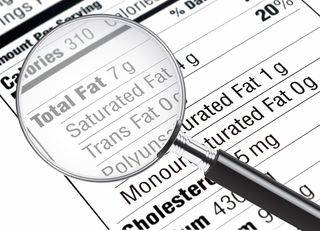Trans Fats May Hurt Memory

CHICAGO — It might be difficult to carefully avoid all of the tasty foods that contain harmful trans fats, but now there's one more reason to try: A new study shows that this type of fat may damage memory in young people.
The findings suggest that memory problems belong on the list of the health problems trans fats are suggested to cause in people, the researchers said.
"While trans fats increase the shelf life of foods, they reduce the shelf life of people," said study researcher Dr. Beatrice Golomb, a professor of medicine at the University of California, San Diego. "From a health standpoint, trans fat consumption has been linked to higher body weight, more aggression and heart disease." [5 Foods that Could Change Under a Trans Fat Ban]
In the new study, the researchers looked at about 1,000 healthy men and found that those who consumed the most trans fats showed worse performance on a word memory test compared with those who consumed the least trans fats.
Moreover, the researchers found the effect was notable in men under age 45.
"Trans fats were most strongly linked to worse memory in young and middle-aged men, during their working and career-building years," Golomb said.
The link held after the researchers took into consideration other factors that could affect memory, such as the participants' age, education and whether they had depression, according to the study, which was presented here Tuesday (Nov. 18) at the meeting of the American Heart Association.
Sign up for the Live Science daily newsletter now
Get the world’s most fascinating discoveries delivered straight to your inbox.
Trans fat is a type of fat that forms when hydrogen is added to liquid oils to turn them into solid fat. The FDA has tentatively determined that partially hydrogenated oils should not be considered "generally recognized as safe" for consumption. If the agency confirms this in a final determination, trans fat would become an illegal food additive.
Trans fats are now used considerably less in food products than in the past, but they have not been entirely eliminated. While some food manufacturers have replaced trans fats with healthier oils, others continue to use trans fats to increase a product's shelf life.
In the new study, participants' level of trans fat consumption was calculated from their own reports of their diets. Those who consumed the highest amount of trans fats reported eating foods containing trans fats at almost every meal, the researchers said.
Under FDA rules, the amount of trans fats in a food has to be declared on its label. However, many consumers may be eating more trans fats than they think, according to a study published in August, because products can legally claim to have "0 grams" of trans fats as long as they contain less than 0.5 grams of trans fats per serving.
In that study, researchers tested more than 4,000 top-selling packaged foods ranging from cookies to salad dressing and canned soup, and found 9 percent of the products contained trans fats, even though the majority of those listed "0 grams" of trans fats on their packaging.
Email Bahar Gholipour. Follow Live Science @livescience, Facebook & Google+. Originally published on Live Science.
